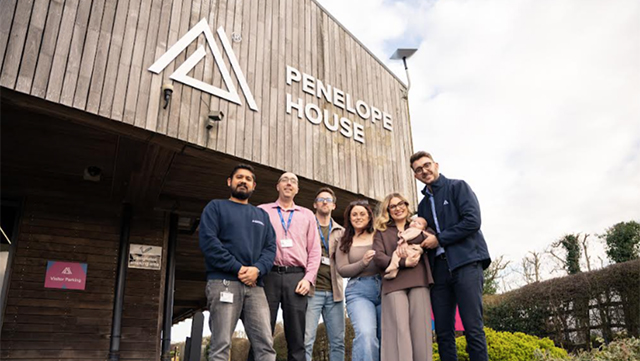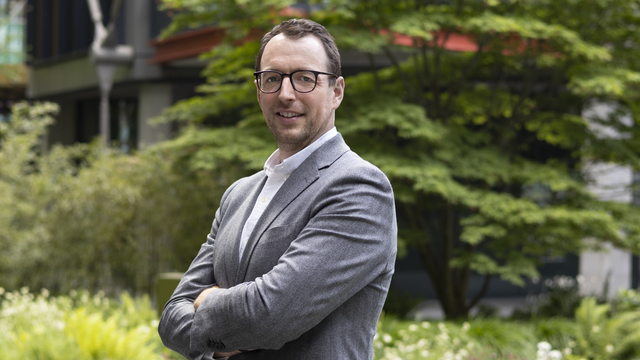After a Qatar-backed rescue, plans for Europe’s tallest tower, the Shard of Glass, include a sharia-compliant financing structure
Nine years ago, when the Shard of Glass was a mere twinkle in Irvine Sellar’s eye, it was unlikely he was dreaming of a shiny monument to East-West relations. But when the project’s bickering partners sold their stakes to Qatari investors earlier this year, it saw a very 21st-century marriage of cultures. What will be Europe’s tallest building will also be its largest scheme to be funded by sharia-compliant finance.
That effectively means that all parties to the Shard project, including both Sellar and its tenants, must subscribe to some of the principles of Islam, on paper at least. It promises to be an important test case for what is becoming an increasingly popular finance solution.
The proposed development of the 2m sq ft Shard tower was pronounced dead by everyone but Sellar last year, especially once the credit crunch virtually killed off development finance. The slanging matches between original owners Sellar Property, CLS Holdings and Simon Halabi sounded like the last acts of a very public wake. But in January, after a year of tortuous negotiations, four Qatari banks snapped up 80% of the Shard’s development rights at a knock-down price of less than £100m.
Renewed confidence in the project last week saw Sellar Property Group appoint Bernard Ainsworth, the project director of the Millennium Dome, to head the construction, and work is now expected to start later this year.The new majority owners – Qatar Islamic Bank, QInvest, Qatar National Bank and Barwar – have been tight-lipped about their plans for the building. But with three of the investors having strictly sharia-compliant finance models, the funding arrangements are expected to change.
The most publicised difference between sharia-compliant and conventional finance is its prohibition of riba, a kind of usury practised during pre-Islamic times among Arabs, which involves delaying the payment of debt in return for an increase in its amount – in other words, interest.
Typically, a sharia-compliant commercial property deal will involve a lender buying the asset and leasing it to the borrower, who then pays the lender regular rental payments before eventually buying it back.
The two Shard stakeholders that are not wholly sharia-compliant are Qatar National Bank and Sellar – and the latter is unlikely to be converting any time soon. Therefore, it is safe to say that with 60% of the consortium signed up to sharia compliance, a new approach to property finance will be forged between all five parties.
The Qataris have made a head start. In March, a newly FSA-regulated sharia finance group, European Finance House, was appointed to provide asset management and sharia-compliant services to the Shard consortium. In effect, this will mean checking that all aspects of the Shard’s funding comply with sharia law. This could include not only the equity and the debt provisions but also the leases and the building management.
The London-based group is 66%-owned by Shard stakeholder Qatar Islamic Bank, a sharia-compliant bank whose chief executive is close to Qatar’s rulers. EFH is headed by Michael Clark (pictured right), who was previously head of corporate and institutional banking at Arab Bank for seven years. Clark says that sharia is finance at its simplest and purest.
“It’s back-to-basics banking, really. There are no derivatives, no sub-prime scenarios, no transactions overlaying other transactions. Everything must have a commercial rationale, whether it is movement of trade goods or investment in assets and infrastructure. The idea of going ‘short’ does not exist. Our customers are very much our partners. The idea is to maximise returns on capital while doing good.”
The ultimate financial structure of the Shard is still to be decided, and likely to be at least 12 months away. For now, the consortium just wants the tower built, and it is still early days to be negotiating finer financial details, such as how rents will be paid and how debt will be serviced.
As all of the members have injected their own equity, the Shard consortium is likely to use a profit-sharing agreement known as a musharakah. This is a partnership in which profits are shared according to an agreed ratio, and all partners have the right to exercise executive powers.
Handling the debt finance
However, there is also a sizeable chunk of debt finance propping up the Shard, after Nationwide and Kaupthing provided a £196m interim loan for the project back in 2006. The owners will have to find a way of paying the lenders interest in a sharia-compliant manner.
One option could see the two banks join the musharakah, by leasing their debt stake in the project to the consortium in return for regular “rental” payments.
Andrew Fursman, EFH’s finance director, says the use of leverage is allowed under sharia, as long as it is kept at a “reasonable” level, judged on a project-by-project basis. “One option could be to put the Islamic equity stake into a special-purpose vehicle, and so ringfence it from the debt-raising vehicle,” he explains.
But there are other restrictions under sharia-compliant law that may cause headaches for both the Shard’s tenants and its investors. Sharia investors are not able to rent properties to organisations involved in alcohol, arms, cinema, conventional financial services, tobacco, pornography, pork or gambling.
There are no plans for any shooting ranges, cinemas, porn shops or casinos to take space in the Shard. London Bridge Tower has also prelet almost one-third of its 600,000 sq ft of offices to anchor tenant Transport for London, in a significant deal agreed two years ago. However, that still leaves a considerable amount of space to let before the tower’s expected completion in 2012.
The Shard’s other major prelet is to global hotel chain Shangri-La, which will provide 170 bedrooms and 25 suites across 200,000 sq ft of the tower. The idea of a glamorous hotel chain in one of London’s most central locations not being able to serve a champagne cocktail – or, for that matter, a juicy fat pork chop – is surely unthinkable.
A criticism often levelled at sharia finance is how it manages to find a way of accommodating such un-Islamic activity without appearing to bend its strict rules.
Clark says: “Provided the project is not deriving direct benefits from the existence of the drinks trade, that’s ok. Typically, it is taken care of by the drinks trade aspects of the development being hived off into separate companies. And that’s not smoke and mirrors – companies like Shangri-La will have to subscribe to the underlying concept.”
A spokeswoman for Shangri-La laughs off the concept of an alcohol-free hotel, and says that Shangri-La is yet to be notified of any issues arising from sharia compliance. “As far as we’re concerned, it’s business as usual,” she says.
However, the Shard still has around 400,000 sq ft of office space to let, and the restrictions on financial firms that make a profit from charging interest could rule out banks and other financial services firms from taking space.
Clark says: “We don’t finance property tenanted by banks – it’s not sharia-compliant. However, the Shard is an evolving project, and these things will need to be looked at in the particular circumstances of the time.”
Hamind Yunis, a partner and sharia expert at lawyer Taylor Wessing, says: “If a bank was operating a back-office function, then I think it could be a tenant – you’d need to look at the business. But if it was involved in the insurance industry or interest paying, it would appear not to be acceptable.”
Sharia-compliant operators point to its ban on the concept of using derivatives or going “short” – practices that largely fuelled the global credit crunch – as an advantage over other lenders in the current climate. However, the sharia-compliant banks have still increased their lending costs along with the rest of the market.
EFH finance director Andrew Fursman says: “Our products are structured to ensure sharia compliance, but the deals being executed are still in the same global arena as conventional deals and, therefore, it is still natural that prices in the global marketplace converge to a degree.”
Decisions about pricing
“Using a totally different analogy, if a restaurant serves halal food, the food is undeniably halal – but its diners, whether Muslim or not, expect its prices to be similar to any comparable restaurant.”
But it won’t be Irvine Sellar, or any of the Qatari investors behind the Shard that will be making decisions about pricing, tenants, rents or funding under a sharia-compliant structure. All methods of financing are decided by a panel of experts – the Sharia Board – which is drawn from respected scholars based in the Middle East, with the expertise to interpret Islamic law. Similarly, every single transaction has to be scrutinised by the board to ensure full compliance with Islamic principles. This could introduce further delays into a process which has already been nine years in the planning.
But if the consortium gets it right, the Shard financing model could be the blueprint for a new generation of developments jointly financed by both Western and Eastern interests. As the credit crunch continues to bite into US and UK finances, the demand from sovereign wealth funds and oil-rich investors is set to continue. And if the sharia-compliant option is available, it will be the preferred financing method for many of those buyers.
The demand is clear and growing. At the beginning of March, a sharia-compliant £2.5bn loan was arranged to back the Chelsea Barracks site in London, a joint venture between a Qatari-backed real estate investor and Candy & Candy, the builders of London apartments for the super-rich.
And only last week, giant fund manager New Star announced it was launching a sharia-compliant European and Asian property fund aimed at Middle Eastern investors.
Sharia finance – a $500bn business
Islamic banking and finance is worth $500bn-$600bn across the world, and has raked up billions of pounds of deals in the UK since 2000. There are a number of methods of financing real estate investment permitted by, and fully compatible with, the principles of sharia law. The key financing methods include:
Ijarah: An Islamic leasing arrangement, where instead of lending money and earning interest, ijarah allows the bank to earn profits by charging rentals on the asset leased to the customer.
Murabahah: Purchase and resale. Instead of lending money, the capital provider buys the asset (for which the loan would have been taken out) from a third party, and resells it at a predetermined higher price to the capital user. By paying this higher price over instalments, the buyer has effectively received credit without paying interest.
Sukuk: Similar to a conventional bond, but asset-backed, a sukuk represents proportionate beneficial ownership in the underlying asset. The asset will be leased to the client to give a return on the investment.
Musharakah: Profit and loss sharing. It is a partnership where profits are shared according to an agreed ratio, whereas the losses are shared in proportion to the investment of each partner.
Mudarabah: An investment partnership, whereby the investor provides capital to another party in order to undertake a business activity. While profits are shared on a pre-agreed ratio, loss of investment is born by the investor only.
Every transaction must be approved by the Sharia Board, a group of highly respected scholars responsible for reviewing, approving, and overseeing all sharia product offerings.
According to European Finance House, while the scholars are responsible for ensuring strict adherence to the principles of sharia, they are also extremely well versed in business and commerce.










